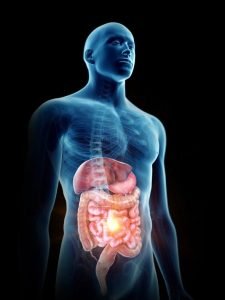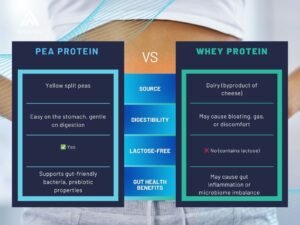
How Your Diet Shapes Your Bowel Movements (and Gut Health)
What you eat directly impacts your digestion, bowel movements, and overall gut health. Struggling with constipation, bloating, or irregularity? The key lies in your diet.

Home » Navigating the Maze: Understanding Common Digestive Disorders
The intricate dance of organs and processes within our digestive system is crucial for nutrient absorption and overall well-being. However, this delicate balance can be disrupted by various factors, leading to what we commonly refer to as digestive disorders. Digestive disorders encompass a spectrum of conditions that affect the proper functioning of the gastrointestinal tract, compromising the body’s ability to process food effectively.
The significance of a well-functioning digestive system extends beyond mere nutrient absorption. It plays a pivotal role in supporting our immune system, maintaining energy levels, and even influencing mental well-being. When the digestive system is compromised, it can lead to a range of discomforts, from mild indigestion to more severe conditions that significantly impact daily life.
In this comprehensive guide, we will delve into the world of common digestive disorders, offering insights into their causes, symptoms, and available treatments. By understanding these disorders, individuals can make informed decisions about their health, adopt preventive measures, and seek timely medical intervention when needed. Join us on this journey as we navigate through the complexities of the digestive system and shed light on strategies to promote digestive well-being.

The digestive system is a marvel of biological engineering, comprising a series of organs working in harmony to break down food into essential nutrients. From the moment food enters the mouth, it encounters a meticulously orchestrated process involving the stomach, small intestine, large intestine, liver, and pancreas. Each organ has a specific role in ensuring that nutrients are extracted and waste is efficiently eliminated.
Mouth and Esophagus:
Stomach:
Small Intestine:
Liver:
Pancreas:
Large Intestine (Colon):
Digestive enzymes, such as amylase, lipase, and protease, are essential catalysts in the digestive process. They break down complex molecules into simpler forms that the body can absorb. Any disruption in the production or function of these enzymes can lead to digestive disorders, emphasizing the delicate balance required for optimal digestive health.
Understanding the intricacies of the digestive system lays the foundation for comprehending how common digestive disorders can arise. In the next sections, we will explore these disorders in detail, shedding light on their causes, symptoms, and effective management strategies.

Causes and Risk Factors:
Symptoms:
Treatment Options:
Understanding IBS:
Common Triggers:
Managing Symptoms:
Types of IBD (Crohn’s Disease and Ulcerative Colitis):
Symptoms and Complications:
Treatment Approaches:
Gluten Sensitivity vs. Celiac Disease:
Symptoms and Diagnosis:
Gluten-Free Diet and Management:
Formation and Causes:
Symptoms:
Treatment Options:
Understanding these common digestive disorders is the first step toward effective management and improved quality of life. In the following sections, we will explore preventive measures, lifestyle tips, and the importance of seeking professional help for maintaining digestive health.

Fiber-rich Foods:
Hydration:
These lifestyle tips can contribute significantly to maintaining a healthy digestive system. However, it’s important to note that individual responses may vary. Adopting a holistic approach that combines a balanced diet, regular exercise, stress management, and awareness of personal triggers is key to digestive well-being.
In the next section, we will explore the importance of seeking professional help for a thorough understanding of digestive health and early detection of potential issues. Understanding when to consult a healthcare professional and what diagnostic tests and procedures may be involved can be crucial in addressing digestive concerns effectively.

Early Intervention:
Individualized Guidance:
Role of a Gastroenterologist:
Collaboration with Other Specialists:
Endoscopy:
Colonoscopy:
Blood Tests:
Imaging Studies:
Understanding when to seek professional help and the potential diagnostic tools available empowers individuals to take proactive steps toward digestive health. In the concluding section, we will reflect on the information presented, recap the common digestive disorders, and emphasize the commitment to digestive well-being.
Holistic Approach:
Community Support:
In closing, this blog post has aimed to demystify common digestive disorders, providing insights into their causes, symptoms, and management. Prioritizing digestive health is a proactive step towards overall well-being, and by fostering a deeper understanding, individuals can empower themselves to make informed decisions about their lifestyles and seek help when needed.
Remember, your digestive health is a vital component of your overall health—take the necessary steps to nurture it, and consult with healthcare professionals for personalized guidance on your journey to digestive well-being.

What you eat directly impacts your digestion, bowel movements, and overall gut health. Struggling with constipation, bloating, or irregularity? The key lies in your diet.

You’ve been pooping wrong your entire life—and it’s wrecking your gut. Dr. Gina Sam’s poop method reveals the shockingly simple, doctor-backed fix that makes straining

Struggling with bloating after protein shakes? Your choice of protein could be affecting your gut health. Pea protein is gentle and gut-friendly, while whey protein

Table of Contents <svg aria-hidden=”true” viewBox=”0 0 448 512″ xmlns=”http://www.w3.org/2000/svg”><path d=”M207.029 381.476L12.686 187.132c-9.373-9.373-9.373-24.569 0-33.941l22.667-22.667c9.357-9.357 24.522-9.375 33.901-.04L224 284.505l154.745-154.021c9.379-9.335 24.544-9.317 33.901.04l22.667 22.667c9.373 9.373 9.373 24.569 0 33.941L240.971

Happy Poops.
What about your friends?